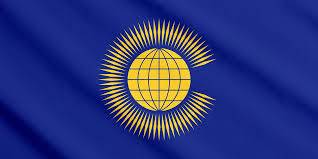Introduction
The Commonwealth, an association of sovereign states spanning every continent, represents a diverse and interconnected global community committed to shared values of democracy, human rights, sustainable development, and the rule of law. Established in 1949, the Commonwealth has evolved into a platform for cooperation, mutual support, and the promotion of inclusive prosperity among its 54 member countries. This article explores the history, structure, values, achievements, challenges, and future prospects of the Commonwealth, highlighting its significance in the contemporary world.
Historical Context and Evolution
The roots of the Commonwealth can be traced back to the British Empire, which at its peak encompassed territories across the globe. Following the decolonization process after World War II, many former British colonies gained independence and expressed a desire to maintain ties with each other and with Britain. The Commonwealth emerged as a voluntary association, distinct from colonial ties, aimed at fostering cooperation and friendship among its members.
Values and Principles
Central to the Commonwealth’s ethos are its core values:
• Democracy and Good Governance: Member states uphold democratic principles, including free and fair elections, accountable governance, and respect for human rights.
• Rule of Law: Commitment to legal frameworks that promote justice, equality, and the protection of rights.
• Human Rights: Advocacy for the rights and dignity of all individuals, regardless of race, gender, religion, or background.
• Sustainable Development: Pursuit of economic and social development that is environmentally sustainable and inclusive.
• Peace and Security: Promotion of peace, security, and stability through dialogue, conflict prevention, and disarmament efforts.
Structure and Organization
The Commonwealth operates through several key bodies:
• Head of the Commonwealth: Currently Queen Elizabeth II, serving as a symbolic figurehead representing the unity of the Commonwealth.
• Commonwealth Secretariat: Headed by the Secretary-General, responsible for coordinating and supporting Commonwealth activities and initiatives.
• Commonwealth Ministerial Action Group (CMAG): Addresses serious or persistent violations of Commonwealth values among member states.
• Commonwealth Foundation: Promotes civil society engagement and development initiatives.
Achievements and Contributions
Throughout its existence, the Commonwealth has made significant contributions to global affairs:
• Promotion of Democracy: Assisting member states in strengthening democratic institutions and electoral processes.
• Education and Capacity Building: Supporting educational programs, scholarships, and initiatives to enhance human capital development.
• Trade and Economic Cooperation: Facilitating trade agreements, economic partnerships, and business networks among member states.
• Health and Social Development: Addressing public health challenges, promoting gender equality, and combating poverty through sustainable development projects.
• Cultural Exchange and Heritage Preservation: Celebrating cultural diversity and preserving shared heritage through initiatives like the Commonwealth Games and cultural festivals.
Challenges and Criticisms
Despite its achievements, the Commonwealth faces challenges and criticisms:
• Relevance and Effectiveness: Criticism over its ability to influence global governance and address contemporary issues effectively.
• Membership and Diversity: Balancing the interests and needs of diverse member states, including small states and larger economies.
• Human Rights Concerns: Addressing human rights violations within member states and ensuring accountability.
• Funding and Resources: Securing adequate resources to sustain programs and initiatives, particularly in less developed regions.
Future Prospects and Adaptation
Looking ahead, the Commonwealth seeks to adapt to emerging global trends and challenges:
• Climate Change: Addressing climate resilience, adaptation strategies, and sustainable development goals.
• Digital Economy: Promoting digital literacy, connectivity, and innovation across member states.
• Youth Engagement: Empowering young people through education, leadership development, and entrepreneurship opportunities.
• Global Health: Strengthening health systems, pandemic preparedness, and cooperation in health emergencies.
Conclusion
The Commonwealth remains a unique and influential global organization, fostering collaboration, friendship, and mutual support among diverse nations. As it navigates the complexities of the 21st century, the Commonwealth continues to uphold its values while adapting to meet the evolving needs of its member states and the broader global community. Through collective action and shared commitment, the Commonwealth endeavors to promote peace, prosperity, and sustainable development for generations to come.



No comments yet
Be the first to share your thoughts!